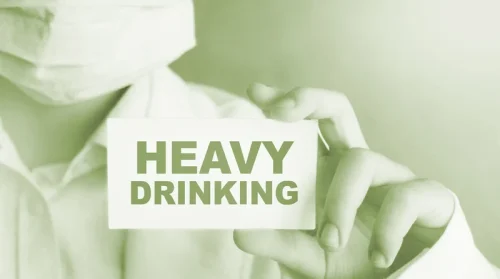
During a detox, anxiety can manifest physically and mentally, often causing symptoms like ‘the shakes,’ trembling, distress, and panic as https://ecosoberhouse.com/article/cocaine-addiction-treatment-and-rehab/ the body and mind go through withdrawal. Making lifestyle adjustments that are directly linked to your alcohol consumption can help make adjusting your drinking habits a lot easier. Learning more about the triggers that cause anxiety in our mind and body means we can slowly start to adjust our behaviour and introduce more compassionate and caring practices that work for us. Some people call the anxiety, worry, dread, or panic after a night of heavy drinking ‘hangxiety’ or ‘the fear’.
- Alcohol can cause a panic attack while we’re drunk or after we drink, and it can increase our risk for a panic attack to recur.
- Ask your doctor if moderate alcohol consumption is suitable for you.
- Most patients notice a reduction in anxiety within 2 to 4 weeks, with continued improvement over time.
- In this final section, we will analyze the pros and cons of drinking, discuss safe drinking habits, and explore alternative options to alcohol.
Why does alcohol make my anxiety worse?
- Symptoms of a panic attack include sudden and intense anxiety, feelings of being detached from oneself, and feeling like you cannot manage your own thoughts, emotions or behaviors.
- Five percent of all American adults (more women than men) suffer a panic attack at least once during their lifetime.
Proper rest ensures the brain is restored and able to function to the best of its ability. Talking with family or friends, exercise, and simple activities like reading a book can also help calm feelings of anxiety. Erin is a Nurse Practitioner with 8 years of experience in midwifery and does alcohol cause anxiety women’s health. She has spent the past 5 years specializing in the treatment of opioid and alcohol use disorders. Naltrexone reduces alcohol cravings by blocking alcohol’s effects in the brain. It is often used for patients with alcohol dependence who also experience anxiety.

Can individuals with anxiety disorders be more affected by drinking?
This approach minimizes the risk of severe withdrawal effects and helps stabilize the individual’s mental health during the detox process. Additionally, other medications may be prescribed to help manage anxiety and panic attacks, ensuring a safer and more comfortable detox experience. In the following sections, we will delve deeper into the correlation between alcohol and panic attacks, exploring relevant studies, personal testimonies, and possible triggers. For individuals with alcohol use disorder (AUD), the process of detoxing from alcohol can trigger a range of withdrawal symptoms, including panic attacks. Research has shown that those who attempt to withdraw from alcohol often meet the diagnostic criteria for panic attacks, panic disorder, and even agoraphobia.

The Importance of Seeking Professional Help
If you live with co-occurring alcohol use and panic attacks, it’s essential to address both in treatment. If you address one and Drug rehabilitation not the other, it’s likely you’ll remain stuck in the cycle. For example, if you try to treat alcohol use disorder without addressing the panic attacks, you may be triggered to use alcohol the next time you have a panic attack.
It is true that alcohol can help with anxiety, at least temporarily, but it can also make it worse in the long run and cause serious panic attacks. While it is normal to feel anxious after heavy drinking, when alcohol-induced panic attacks become a common occurrence, it is a sign of a serious problem. Yes, individuals with pre-existing anxiety disorders are particularly vulnerable to the negative effects of alcohol. The cycle of drinking to alleviate anxiety often results in exacerbated symptoms, making it difficult for them to manage their condition effectively.
